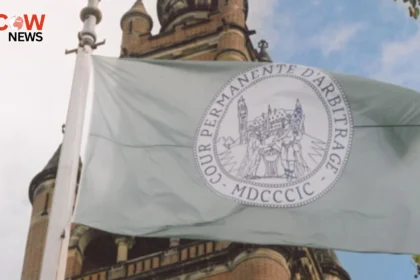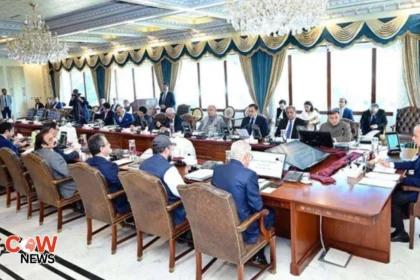In a recent session of the Supreme Court of Pakistan, a notable exchange occurred that underscores both the reverence for seniority within the judiciary and the anticipation surrounding the appointment of the next chief justice. The case in question involved apartment allotments in Sector G-10, Islamabad, where petitioner Khushdil Khan Malik voiced a desire for Justice Mansoor Ali Shah to remain on Bench I. Justice Shah, the most senior judge currently, responded with humility, stating, “Whatever Allah wills will happen.” This interaction has drawn attention at a pivotal moment when judicial leadership is set to transition.
Background of the
Case
The hearing on apartment allotments is part of ongoing legal proceedings that have significant implications for numerous residents in Islamabad. The Sector G-10 area has been a focal point for various housing disputes, and the Supreme Court’s involvement highlights the judiciary’s role in resolving public grievances. During this session, the court sought to ensure that all relevant records were available for review, prompting an adjournment for two weeks.
The adjournment was also indicative of the court’s procedural rigor, ensuring that all parties have adequate time to prepare. It reflects a commitment to fairness in the judicial process, a value that Justice Shah has consistently embodied throughout his career. The involvement of the Pakistan Housing Authority (PHA) and its managing director in providing documentation underscores the complexity of these housing issues, often involving multiple stakeholders and bureaucratic layers.
Justice Mansoor Ali Shah: A Profile
Justice Mansoor Ali Shah has been a significant figure in Pakistan’s legal landscape, known for his commitment to justice and integrity. Appointed to the Supreme Court in 2016, he has a long history of judicial service and has been involved in several landmark cases that have shaped legal precedents in the country.
His approach to jurisprudence has earned him respect not only from his peers but also from the public. Justice Shah is recognized for his thorough understanding of the law and his ability to navigate complex legal matters. His tenure has been marked by a commitment to upholding the Constitution and protecting the rights of citizens, often addressing issues related to civil liberties, human rights, and public accountability.
The Current Context: Appointment of New Chief Justice
The timing of Justice Shah’s remarks is particularly significant as the Supreme Court prepares for a leadership transition. The newly formed 12-member special parliamentary committee is set to convene to discuss the appointment of the next chief justice of Pakistan. This committee, which will meet at 4 PM, has the important task of reviewing the qualifications and seniority of the top three judges, including Justice Shah.
As the most senior judge, Justice Shah’s potential appointment is being closely monitored. His leadership could influence not only the direction of the Supreme Court but also the broader judicial system in Pakistan, especially in light of recent criticisms regarding judicial independence and accountability.
The Selection Process: A Matter of Serious Deliberation
The selection of a chief justice in Pakistan is a process that requires careful consideration. The committee must reach a decision by a two-thirds majority, a task that can be complex given the various interests and perspectives within the parliamentary framework. Following their decision, the recommendation will be forwarded to the prime minister for approval, marking a crucial step in the judicial appointment process.
The discussions within the committee are expected to encompass various factors, including the judges’ legal acumen, prior judicial conduct, and the ability to maintain the independence of the judiciary amid political pressures. Justice Shah’s reputation as a principled jurist makes him a strong candidate; however, the final decision will be shaped by the dynamics of the committee and the political landscape at the time of the appointment.
Judicial Independence and Public Trust
The role of the chief justice extends beyond administrative duties; it significantly impacts public trust in the judicial system. The selection process comes at a time when many citizens are increasingly concerned about the independence of the judiciary and its ability to act as a check on executive power. The appointment of a chief justice who embodies integrity and judicial independence is crucial for reinforcing public confidence in legal institutions.
Justice Shah’s potential leadership could signify a commitment to uphold the rule of law, especially given his track record in addressing controversial cases and advocating for the rights of marginalized communities. His approach to justice is seen as a beacon of hope for many who believe in the judiciary’s capacity to enact meaningful change in society.
The Role of Seniority in Judicial Appointments
Seniority plays a critical role in judicial appointments, especially in the Supreme Court, where the hierarchy is deeply respected. The reverence for senior judges is reflected in the legal culture of Pakistan, where experience and a track record of judicial wisdom are valued highly. The petitioner’s appeal for Justice Shah to remain on Bench I is indicative of the confidence that the public and legal professionals place in senior judges.
Justice Shah’s elevation to chief justice would not only be a personal achievement but also a recognition of the principles of seniority that govern judicial appointments. It reinforces the idea that those who have dedicated years to the service of justice deserve recognition and the opportunity to lead.
Public Sentiment and Media Coverage
The media has closely followed the developments surrounding the appointment of the chief justice, with numerous outlets reporting on the implications of Justice Shah’s potential leadership. Public sentiment appears to favor judges who have demonstrated a commitment to the rule of law and the protection of rights, and Justice Shah fits this profile. His past decisions have often aligned with the public’s desire for accountability and transparency within the government and judicial systems.
Moreover, the engagement of citizens in discussions about judicial appointments reflects a growing awareness of the judiciary’s role in society. As the public becomes more vocal about the need for judicial reform and integrity, the significance of this leadership transition cannot be overstated.
The Road Ahead: Implications for the Judiciary
As the parliamentary committee prepares to meet, the implications of their decision will reverberate throughout the judiciary and beyond. The appointment of a chief justice is not just a procedural formality; it has the potential to shape the legal landscape of Pakistan for years to come.
Justice Shah’s leadership could usher in a new era for the Supreme Court, one marked by a renewed focus on justice, accountability, and human rights. Given the current challenges facing Pakistan, including economic issues and political instability, the judiciary’s role as a stabilizing force becomes even more critical. The next chief justice will need to navigate these complexities while upholding the principles of justice and equity.
Final Thoughts on Judicial Leadership
The recent exchange in the Supreme Court serves as a reminder of the importance of leadership within the judiciary. As Pakistan stands on the brink of a new chapter in its legal history, the selection of a chief justice who can embody the values of integrity, experience, and independence will be crucial.
Justice Mansoor Ali Shah’s journey has already made a significant impact, and as discussions unfold, the legal community and citizens alike will watch closely. The outcome of the committee’s deliberations will not only determine the future of the Supreme Court but will also influence the broader discourse on justice and accountability in Pakistan.
#JusticeMansoorAliShah #SupremeCourt #ChiefJustice #JudicialIndependence #PakistanLaw







